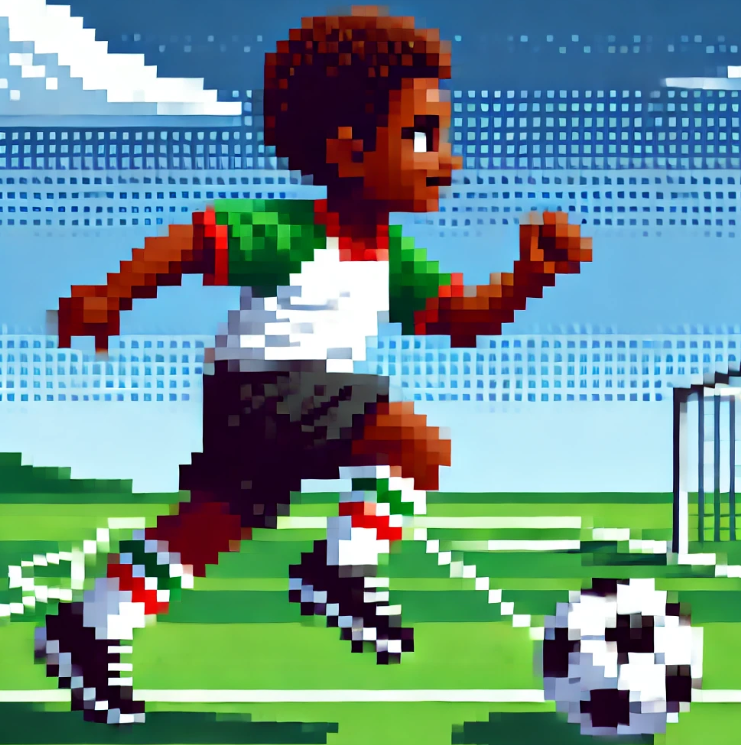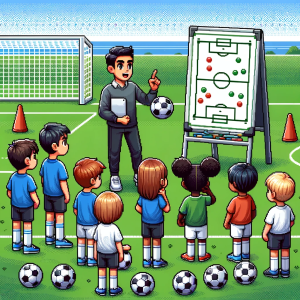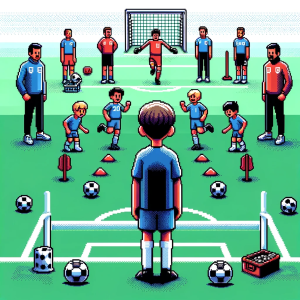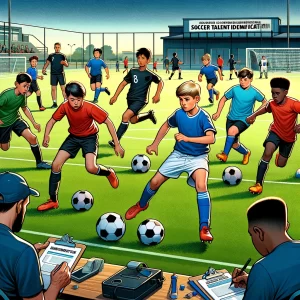
The Age Factor in Soccer: Why It Might Not Matter as Much as You Think
In youth soccer, it’s easy to assume that older or more mature players hold a physical advantage over their younger, less developed teammates. But what if that wasn’t the case? Recent research is challenging the long-held belief that a player’s physical capabilities are closely tied to their age or biological maturity. Instead, the findings suggest that these factors may play a much smaller role in determining a young player’s performance than coaches and scouts might expect.
This new perspective could change how we think about talent identification and development in soccer, and as a coach, this knowledge might just reshape how you approach nurturing the next generation of soccer stars.
Breaking Down the Research: Age and Physical Performance
The study examined 61 male soccer players between the ages of 12 and 15. These players were evaluated on several physical performance measures, including sprinting, jumping, endurance, and repeated sprint ability. The researchers wanted to see how these performance variables related to the players’ chronological age (how old they are), relative age (where they fall within their age group), and pubertal development (how far along they are in their physical maturation).
Surprisingly, the study found that physical performance was only weakly related to age and maturity. For instance, the ability to jump higher in a vertical jump test had a slight connection to both chronological age and pubertal development, but for the most part, these factors didn’t seem to affect the players’ overall soccer performance.
Talent Identification and the Relative Age Effect
In youth sports, players are typically grouped by age, such as Under-12 or Under-14 teams. However, this means that kids born in January of a given year can end up playing with kids born in December, resulting in nearly a full year of difference in age. This gap can lead to what’s known as the “relative age effect,” where older players are often bigger, stronger, and faster than their younger counterparts.
This phenomenon has been a hot topic in youth soccer for years, with many believing that older players within an age group have an unfair advantage. However, this new research suggests that while the relative age effect might influence talent selection at younger ages, it doesn’t necessarily translate into better performance. In fact, the findings indicate that being born earlier in the year or hitting puberty sooner doesn’t automatically make a player more capable on the field.
The Puberty Myth: How Maturity Doesn’t Equal Superiority
It’s tempting to assume that players who mature earlier—those who hit their growth spurt before their teammates—have a clear advantage on the field. After all, bigger players can cover more ground, win more tackles, and outmuscle opponents. However, this study challenges that assumption.
By examining pubertal development alongside physical performance, the researchers found that early-maturing players didn’t consistently outperform their later-maturing peers. For example, while there was some connection between pubertal development and leg power (as measured by vertical jump height), this wasn’t enough to suggest that more mature players had an overwhelming advantage in other key areas like endurance or sprinting ability.
Why This Matters for Coaches and Scouts
These findings are more than just academic—they have real-world implications for soccer coaches, scouts, and anyone involved in player development.
- Rethinking Talent Identification: If physical performance isn’t closely tied to age or maturity, then relying on these factors for talent identification could be leading you to overlook players with great potential. Younger, less mature players may be just as capable—if not more so—than their older or more physically developed teammates. They might just need a bit more time to catch up physically.
- Emphasizing Skill Development Over Size: Instead of focusing on a player’s physical attributes, this research suggests that coaches should place more emphasis on technical skills, game intelligence, and mental toughness. These qualities are often more important than raw physicality, especially as players grow and develop at different rates.
- Long-Term Player Development: Coaches should keep in mind that players develop at different speeds, and a player who isn’t physically dominant at age 13 might still become a standout by the time they’re 16 or 17. Patience is key, and nurturing a player’s long-term growth—rather than focusing solely on immediate results—will lead to better outcomes.
Applications for Coaches and Player Development
So, what does this all mean for you as a coach or scout? Here are some actionable ways to apply the findings of this study:
- Broaden Your Talent Pool: Don’t dismiss players simply because they are younger or haven’t matured as quickly as others. Focus on technical skills, work ethic, and coachability, as these factors may be more predictive of long-term success.
- Avoid Over-Emphasizing Physicality: While size and strength can be helpful, especially in certain positions, they shouldn’t be the sole criteria for talent identification. Instead, look for players who demonstrate quick thinking, good decision-making, and an understanding of the game.
- Support Late Bloomers: Players who develop later might struggle to keep up with their more mature teammates, but this doesn’t mean they lack potential. Make sure you provide opportunities for these players to succeed and don’t let early physical dominance dictate long-term decisions.
- Focus on Holistic Development: Soccer isn’t just about being the fastest or the strongest. Developing well-rounded players who can think tactically, control the ball, and play within a team system will lead to more success than simply choosing the biggest, strongest kids.
Conclusion
This study provides a refreshing perspective on youth soccer development. It highlights the importance of looking beyond physical maturity when identifying and developing talent, focusing instead on long-term growth and skill development. For coaches and scouts, this means rethinking traditional approaches and ensuring that every player, regardless of their age or maturity level, has a chance to reach their full potential.
Elevate your understanding of the beautiful game with ‘This Week in Soccer’.
Subscribe now to our newsletter and be part of a community that transforms theoretical knowledge into practical mastery. Don’t miss out on the chance to access groundbreaking insights and redefine your approach to soccer. Subscribe today!



